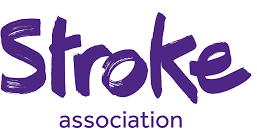
Mar 13, 2018
Published first on ScienceDaily
Doctors caring for severe stroke patients need to take account of their psychological needs and help prepare families for the possibility that they may not recover, a study suggests.
Patients and their families experience debilitating feelings of loss and uncertainty following a major stroke that impact on their quality of life, the findings show.
The results, from repeat interviews carried out over six months, also suggest that healthcare professionals should not shy away from sensitive discussions about death.
The study by the Universities of Edinburgh and Glasgow followed patients in Scotland over the course of a year following a severe form of stroke. Healthcare staff and family carers were also interviewed. (more…)

Mar 13, 2018
Published first on ScienceDaily
New research published in the journal Nature for the first time reveals the atomic structure of a key molecular component of the nervous system.
Scientists at OHSU used advanced imaging techniques to ascertain the resting state of an acid-sensing ion channel. “They are really important ion channels that are spread throughout the body,” said senior author Eric Gouaux, Ph.D., senior scientist with the OHSU Vollum Institute and an investigator with the Howard Hughes Medical Institute. “People have pursued them as targets for stroke therapies, and they clearly have important roles in pain transduction.” (more…)

Mar 13, 2018
Published first on ScienceDaily
Notoriously remembered as a major pharmaceutical scandal approximately 60 years ago, thalidomide caused severe birth defects since many pregnant women took the drug as a remedy for their morning sickness. In recent years, however, thalidomide and its derivatives have been widely used to treat hematologic malignancies such as multiple myeloma.
Further, evidence suggests that it also has a neuroprotective effect, reducing both oxidative stress and inflammatory response, but the exact molecular mechanisms of thalidomide on the brain were unknown.
To investigate, scientists at Waseda University and Tokyo University of Pharmacy and Life Sciences studied thalidomide’s target protein, cereblon (CRBN), and its binding protein, AMP-activated protein kinase (AMPK), which plays an important role in maintaining intracellular energy homeostasis in the brain. Through their study, they revealed that thalidomide inhibits the activity of AMPK via CRBN under oxidative stress and suppresses nerve cell death. (more…)

Mar 2, 2018
Stroke clubs and groups provide essential long-term peer support to stroke survivors, carers, family and friends. They provide an opportunity for those who have been affected by stroke to rediscover previous skills, learn new skills, regain confidence, increase independence and socialise with other individuals who have had similar experiences.
 Stroke Association has received funding for our Hand in Hand peer support programme. This is an ambitious, five-year project enabling us to scale our experience, expertise and knowledge of peer support for the benefit of local stroke communities.
Stroke Association has received funding for our Hand in Hand peer support programme. This is an ambitious, five-year project enabling us to scale our experience, expertise and knowledge of peer support for the benefit of local stroke communities.
As part of this programme, we would like to share some of our experience, expertise and knowledge of peer support with other SAFE members, and to hear about your experiences and insights in delivering peer support. We will hold a webinar on Monday 26th March 2018, 11am BST, 12pm CET (more…)

Feb 28, 2018
TENSION: A new international study funded by EU, hoping to extend the benefits of mechanical thrombectomy
A large new international study hoping to extend the benefits of mechanical thrombectomy has been launched. Thrombectomy is a treatment for certain types of acute ischaemic stroke that can use mechanical devices to drastically reduce the effects of an ongoing stroke. Very small devices are used to break and remove the clot from the blood vessel in the brain. This procedure is carried out by highly skilled neuro-radiologists and requires special hospital facilities. (more…)

Feb 26, 2018
Angels Initiative builds a global community of stroke centers and stroke ready hospitals, working each day to improve the quality of treatment for each patient with stroke.
Written by Prof. Dr Anita Arsovska and Dr Maja Bozhinovska-Smicheska
26.02.2018, Skopje, R. Macedonia– Association for a fight against stroke ,,Stroke” Macedonia in collaboration with University Clinic of Neurology organized a scientific meeting ,,Angels Initiative in Macedonia – next steps” on Friday, 23rd February. Meeting was attended by 50 medical specialists from all over Macedonia. (more…)







